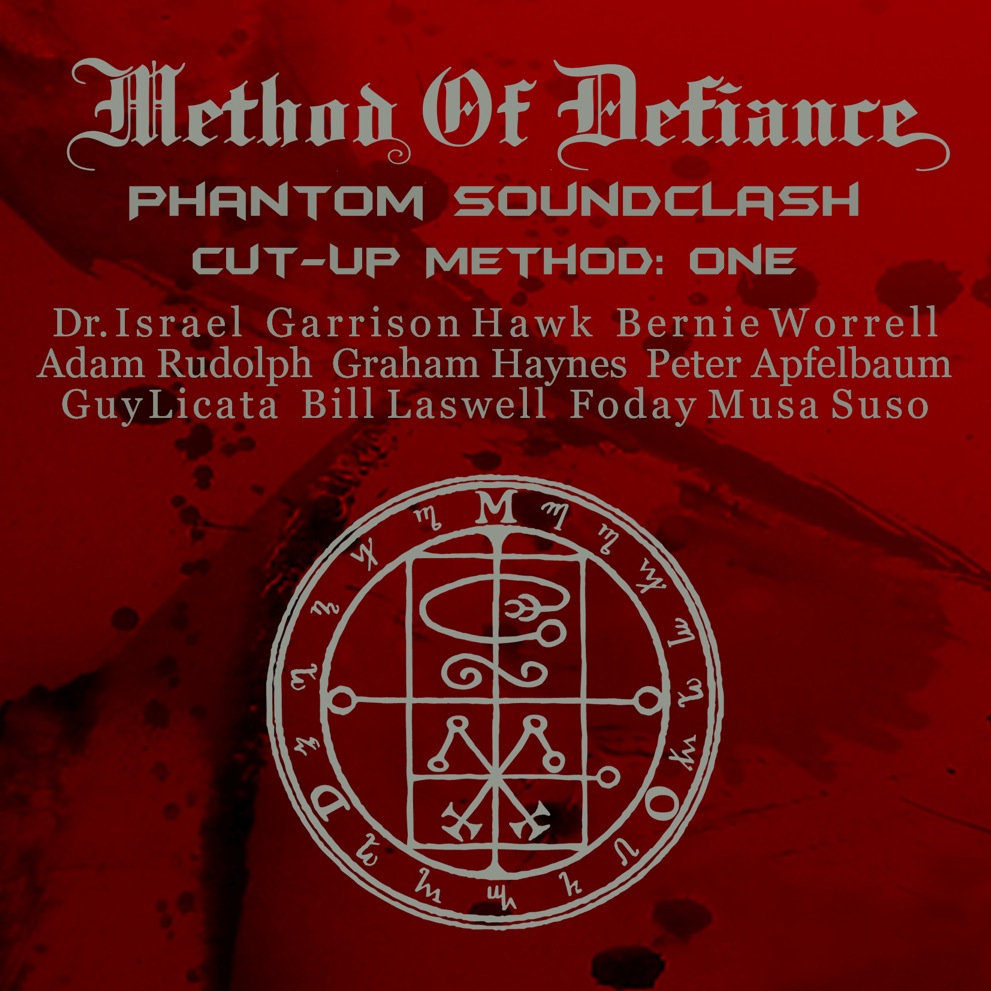METHOD OF DEFIANCE


1/ Nebuchadnezzar (Method of Defiance) 38.08
Recorded April 27, 2014 live at The Stone, New York City
Recorded and engineered by James Dellatacoma
Mix Translation by Bill Laswell
Produced by Bill Laswell
M.O.D. Technologies: Yoko Yamabe
M.O.D. Support: David Brunelle
Dr. Israel: vocals, beats, dubbing; Garrison Hawk: vocals; Bernie Worrell: keyboards; Foday Musa Suso: kora, voice;
Adam Rudolph: percussion, sintir; Graham Haynes: cornet, percussion; Peter Apfelbaum: saxophone, percussion; Guy Licata:
drums; Bill Laswell: bass.
2014 - M.O.D. Technologies (USA), MODDS00005 (digital)
The album consists of one 38-minute track called “Nebuchadnezzar,” a name conjuring buried secrets, unburied symbols, and, beneath all, a fluid skin shared by humanity and animality. Such is the vibe with which Worrell’s keyboarding paints a dream so tender and immediate that every tear it sheds produces another weeping eye. We are scraped into reality by a distant mechanical whir, one in which is sung all futures as if they were insects poised on the horizon’s mountainous tongue. Purification is the illusion by which they lash at anyone who would turn away. A charging rhinoceros of sound awaits those who remain, its horn tearing through the underbrush like a shark ready to breach its karmic enclosure and masticate enlightenment at the vector of its own cerebral cortex.
The ensuing beat is its signature. Like a chemical reaction without visible effect, it veils chaos with order. Suso’s kora comes as a voice of earth amid the stormy heavens, a bird of flesh and feather bound to metal, the frequency of which has a way of matching whoever chooses to listen. Haynes’s trumpet, meanwhile, is the trickster overhead, jumping from cloud to cloud in a matrix of its own design. But no matter the singularity grasped during the listening process, each instrument is but one star in a crop dusted with galaxies. For what should emerge from the smoke and thickness of being but a memory of organ and choir folded like an origami version of itself and glued into the pop-up book that birthed it.
Phantom Soundclash foregoes the lofty ideal of the mash-up as a blender switched to puree, favoring instead the chunky textures of a broken machine, the inputs of which yield discernible hybrids. This is music that treats its own skin as a tattooable surface, even as it grinds itself along an inkstone of modulation toward sacrifice.
Tyran Grillo (courtesy of the ECM Reviews website)